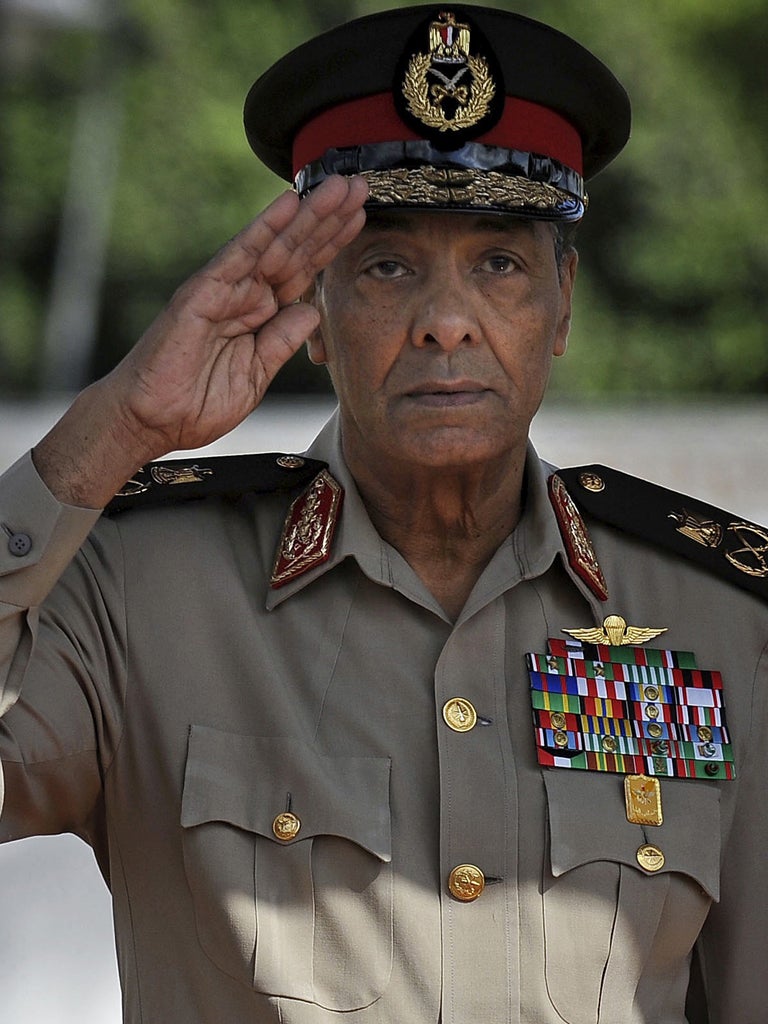Under fire, the Field Marshal in charge of Egypt

Your support helps us to tell the story
From reproductive rights to climate change to Big Tech, The Independent is on the ground when the story is developing. Whether it's investigating the financials of Elon Musk's pro-Trump PAC or producing our latest documentary, 'The A Word', which shines a light on the American women fighting for reproductive rights, we know how important it is to parse out the facts from the messaging.
At such a critical moment in US history, we need reporters on the ground. Your donation allows us to keep sending journalists to speak to both sides of the story.
The Independent is trusted by Americans across the entire political spectrum. And unlike many other quality news outlets, we choose not to lock Americans out of our reporting and analysis with paywalls. We believe quality journalism should be available to everyone, paid for by those who can afford it.
Your support makes all the difference.Given the degree of animosity that has been directed at Field Marshal Hussein Tantawi over the past four days, it is easy to lose sight of just how popular he and his army were in the first flushes of revolutionary Egypt.
When the Field Marshal visited troops stationed in Tahrir Square on February 4, it appeared to emphasise his solidarity with the demonstrators. What a difference nine months can make.
Yet nobody can say the writing wasn't on the wall. US cables published by Wikileaks described Tantawi as "aged and change-resistant". They suggested the old warhorse was not nearly as popular with his officers as he was in with many Egyptians.
Originally of south-Egyptian Nubian origin, Tantawi was born in 1935 and served his military education in Russia during the 1950s, a time of huge political upheaval in Egypt. He fought during the 1956 Suez Crisis, when the newly ensconced and wildly popular Gamal Abdel Nasser nationalised the Canal, and later served in the 1967 and 1973 wars against Israel.
A close confidant of Former President Hosni Mubarak, he served as minister of defence from 1991 and became overall commander of the armed forces four years later.
Join our commenting forum
Join thought-provoking conversations, follow other Independent readers and see their replies
Comments